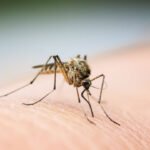As the festive season draws to a close, the threat of cardiovascular disease (CVD) looms large. Heart attacks are one of the leading causes of death during this time of year. Heart-related deaths are at an all-time high during the winter season, particularly around Christmas and the New Year. Heart attacks are a major global health issue. There are many reasons why heart attacks are on the rise, and the factors that contribute to stroke and heart attack are on the rise as well. It’s important to plan how to enjoy the holidays responsibly, and to keep an eye out for other health risks that go beyond holiday concerns and take the necessary precautions.
Cardiovascular disease (CVD) is still the world’s leading cause of death (COVID-19) with an estimated 17.3M deaths in 2022, representing 30% of global COVID-19 mortality.
There is a seasonal variation in CVD disease and death rates in both the Northern Hemisphere and Southern Hemisphere. In the Northern Hemisphere, there is an increase in the number of CVD-related deaths during the winter season, especially during the peak holiday season (Christmas and New Year). This variation is linked to a variety of risk factors, such as temperature, exercise, air pollution and infections, as well as dietary habits.
There are several reasons why heart attacks are more likely to occur during the winter holidays. The first is that cold weather causes the sympathetic nervous system to kick in, which increases heart rate, increases blood pressure, and constricts blood vessels. This can put a lot of stress on the hearts of people who already have pre-existing heart problems. The second reason is that lifestyle changes during the holiday season, such as eating more food and drinking more alcohol, less exercise, and more stress due to travel and social obligations, can exacerbate existing heart risks.
Winter’s shorter hours and less sunlight also increase the risk of seasonal affective disorder (SAD), which is associated with increased inflammation and depression. Both of these conditions can increase the risk of heart disease. Winter also brings higher levels of air pollution, which can worsen lung conditions and have a negative impact on cardiovascular health.
Understanding the impact of environment and biology can improve prevention strategies and education, particularly for those at risk for cardiovascular disease. People need to be made aware of the increased risk of cardiovascular disease during colder months, and they need to be educated on the benefits of regular exercise and appropriate winter clothing. They also need to be encouraged to adopt healthy eating habits, including regular intake of vitamin D and a low-fat diet. Hospital resources also need to be managed effectively during winter to avoid bed crises.
How to enjoy all the indulgences without sacrificing your heart health?
The best way to enjoy the festivities without sacrificing your heart is to be mindful of what you eat and drink. Try to avoid high-fructose, high-calorie foods and limit your alcohol intake. Instead, opt for healthier options like fruits, vegetables and lean protein.
Don’t let overeating or sedentary behaviour get the better of you. Stay active with activities such as brisk walking or dancing.
Make sure you get enough sleep (7 to 8 hours a night) for your overall health and heart health.
Manage stress with yoga, meditation or by spending time in nature.
In addition to heart health concerns, there are other health risks associated with the holiday season. Accidents are more likely to occur during the Christmas and New Year holidays due to alcohol consumption, travel exhaustion, and changes in daily routines. Poor food handling and storage can also increase the risk of foodborne illnesses, which is why food safety is so important during the holiday season. Anxiety and depression are common during the holiday season, which is why it’s important to be aware of your mental health and seek help.
There’s more to winter risks than just heart health. There are many environmental and lifestyle factors that can affect your overall wellbeing during the holiday season. Being aware of these risks and adopting healthy habits can help you enjoy the holidays in a safe and healthy way. By understanding how the environment and lifestyle can affect your health, you can start the new year with a renewed focus on your cardiovascular health and overall well-being.











